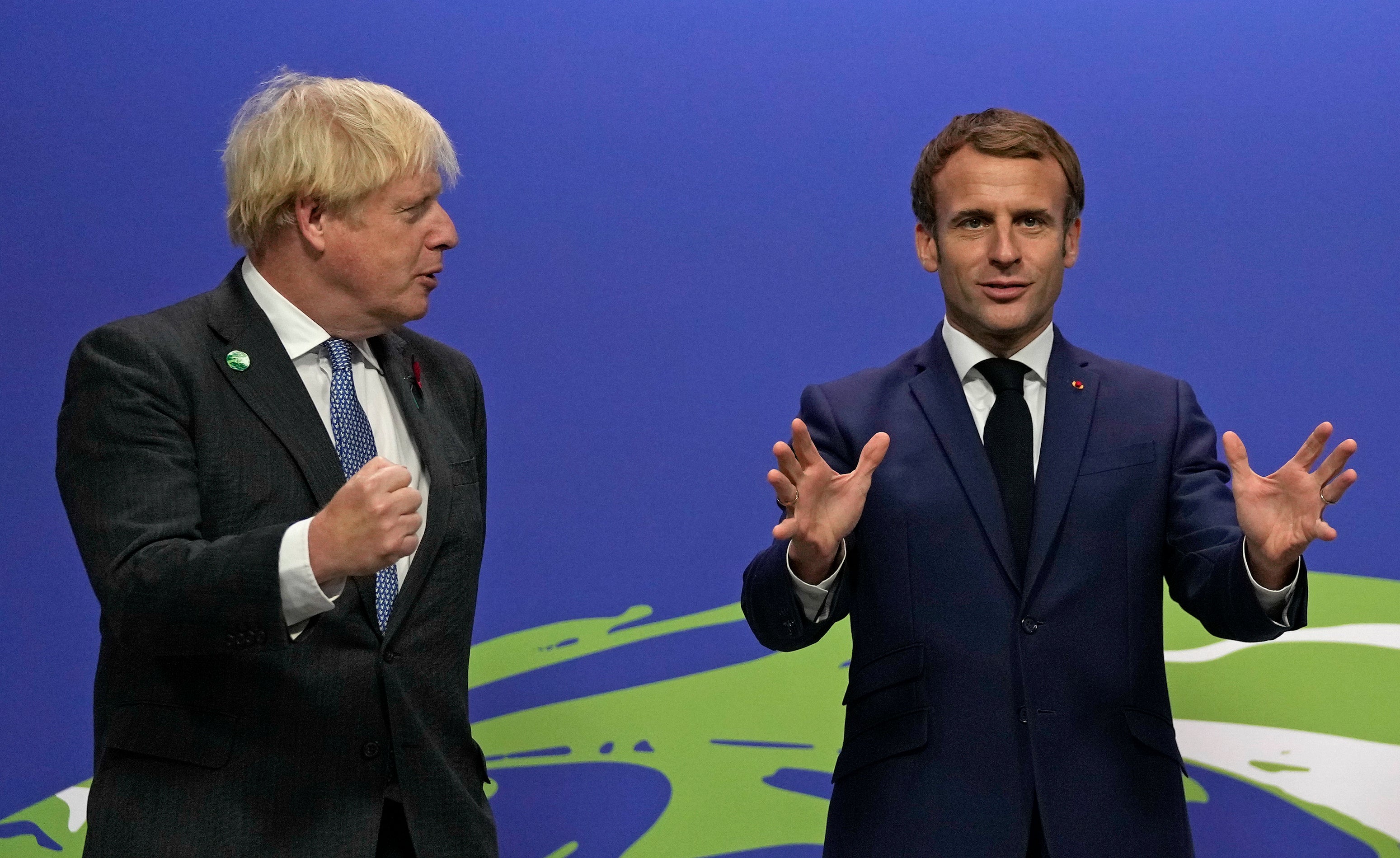Macron and Johnson are – shock, horror – more similar than you think
What both leaders have in common is the same strength and weakness – an inability to reckon with the reality of the countries they rule, writes Marie Le Conte


Few people are as irritating as professional contrarians, but there is occasional joy to be found in having an opinion that you know will please no one. You can admire it and cherish it, knowing that it is yours because no one else could possibly want it.
There is one I have had for some months now, which has brought me endless private joy. I think I may be ready to share it with you now, because it has become adjacent to the news in recent weeks.
Here it is: the relationship between France and Britain hasn’t just become fraught because of Brexit. The two countries are struggling with one another because, at heart, Boris Johnson and Emmanuel Macron are too alike. No, really – let me explain.
For a start, their rises to political power were oddly similar. Macron was a civil servant, then an investment banker, before becoming an adviser to Francois Hollande in 2010. After briefly leaving politics in 2014, he was appointed as minister to the economy. Two years later, and while still serving in a Parti Socialiste administration, he launched his own party, then “betrayed” Hollande by quitting his post shortly afterwards.
Does this remind you of anyone? The early career away from politics, the drive to make tremendous amounts of money, the backstabbing of a leader who had put his faith in him? Or, perhaps more importantly, the uncanny ability to rise and rise until eventually getting the top job, without having ever bothered with building alliances and cliques with contemporaries?
There is also the relationship with the media, which was good – too good? – at first, because journalists will always love a character. On one side of the Channel it was a young and sharp figure who happily answered questions instead of dilly-dallying like politicians often do; on the other, a compelling buffoon who turned dilly-dallying into an art form.
In both cases, it led to great electoral success which nevertheless divided the country more than it united it. Destroying old electoral coalitions to rebuild their own, Macron and Johnson could only ever be more polarising than the traditional party leaders that had come before them. They stand victorious but alone.
Still, none of this quite tells the whole story. What Johnson and Macron have in common is that they have the same strength and weakness; an inability to reckon with the reality of the countries they rule.
Two-and-a-half years ago, I wrote this about the French president: “It is unclear whether Macron really does like France. He adores France for its history, waxes lyrical about the France shown in its classical literature, has a million-and-one ideas about what France could and should become and how it should present itself to the world, but all of these things are not France, not really.
A country isn’t simply the image of a country, and Macron has demonstrably struggled when dealing with the more granular aspects of governing. Rarely has someone so obviously wished to be leading in poetry when they are trapped in tedious prose.”
I could easily have written the same yesterday, about Johnson and Britain. Johnson loves the idea of the United Kingdom; he loves Shakespeare and the hallowed halls of old universities, and he loves talking of the sunlit uplands he believes are on the horizon. The only problem is that most of his work doesn’t revolve around either.
The trick here, of course, is that the platonic ideal of France and the platonic ideal of Britain can only ever quarrel with one another; it is what they were born to do. The countries in Macron and Johnson’s psyches will always be opponents; it is what they used to be, ergo it is what they must be now.
It is about fishing today and it was about security in the South China Sea a few weeks ago; we are told it is all about Brexit but I am sure it would be about something else entirely even if Brexit hadn’t happened. France and Britain are uneasy siblings and the men running them are too similar for their own good.
You may disagree with me and that is fine; I did begin this by announcing that my thesis would not be a popular one. I do wonder what Johnson and Macron would make of it, though. I bet they would hate it, nearly as much as they love to hate each other.






Join our commenting forum
Join thought-provoking conversations, follow other Independent readers and see their replies
Comments